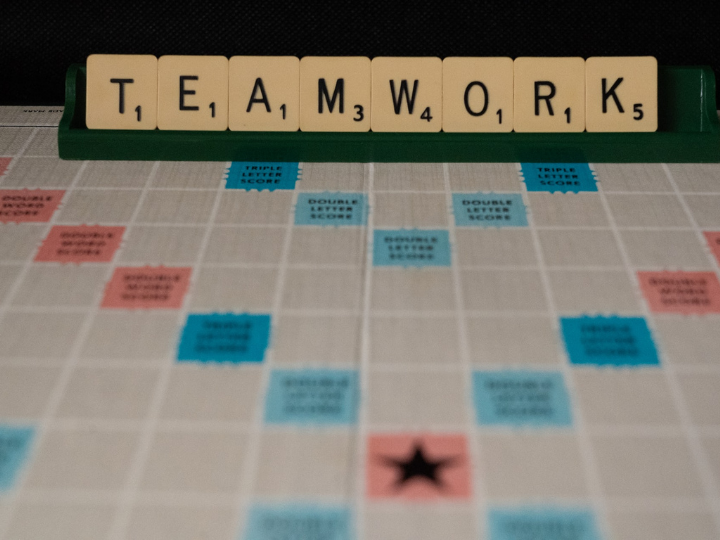by Adam Grant and Alexander Puutio*
A few weeks ago, the Global Shapers Community – an initiative of the World Economic Forum – brought hundreds of bright and passionate young leaders from around the world together virtually for the Annual Curators Meeting in order to equip them with the skills, knowledge and tools they need to lead positive social change in their communities.
Today we are sharing four key messages from a particularly exciting skills session, which explored leadership, collaboration and how to create productive and committed teams.
1. Build an organization in which givers can succeed
There are three main reciprocation styles that we encounter in our daily social interactions, according to Adam Grant’s book Give and Take: giving, taking and matching.
-Givers take an ‘other-focused’ approach to reciprocation. They devote time to helping others even when they gain nothing in the transaction.
-Takers are ‘self-focused’ reciprocators and place their own needs ahead of others. Self-promotion, extreme competitiveness, and credit-seeking behaviour is typical.
-Matchers espouse the ‘tit for tat’ style reciprocation and they build social relationships based on fair exchanges and quid-pro-quo processes.
Of the above trio, it is givers that are a true boon to organizations. In fact, research has shown that givers boost their organization’s performance on virtually every measurable metric from profits to employee retention and customer satisfaction.
As a result, it is important to create teams where givers can flourish. Promoting an organizational culture where asking for help is the norm, and not a sign of incompetence, is a great start. Avoiding takers to begin with is equally helpful.
2. Do your best to filter out takers
Recruitment processes that emphasize accomplishments over competencies and reciprocation styles draw in takers like a magnet. Luckily, there are ways to identify takers before they step into the office that don’t require a wholesale rethink of how to recruit talent.
One of the most consistent ways to identify takers is to pose a simple employee-behavior related question such as “what percentage of employees are stealing ten dollars or more in your organization?” Research has shown that people are likely to base their answers on personal patterns of behaviour, leading takers to provide higher estimates than givers and matchers on average.
It is important to use questions such as the above as entry points instead of elimination rounds. However, asking candidates who show self-interested and cut-throat-competitive behaviour in their responses for a deeper assessment of their reciprocating styles is not a bad idea.
3. Bring out the better angels of our nature
Our personalities are not set in stone, and most of us exhibit taker, giver and matcher-like behavior at different times and in different contexts throughout our lives. With the right mix of incentives, cultural norms and policies it is possible to coax out persistent patterns of giving even in those who tend towards taking. One surefire way to bring out the better angels of our nature is to recognize giving, and make it more visible.
What leadership sees is typically the tip of the iceberg, with the majority of giving happening in informal and private interactions. Including giving-focused indicators into performance assessments, publicly celebrating the unsung heroes that go out of their way to assist others and rewarding the sharing of credit and knowledge are all excellent ways to foster a culture of giving.
More importantly, setting ‘giver-focused’ metrics for performance incentivizes takers to leverage their self-interest for the benefit of the organization.
4. Embrace the positives of pessimism and build upon individual strengths
It is tempting to think that optimists fare better in professional life, but research shows that optimists and pessimists can perform equally well in any organization.
Optimists make for wonderful collaborators and extroverts can be veritable giving-machines when put in the right context. However, there are also significant benefits to having pessimists in our teams. For starters, they often excel at mapping out worst-case scenarios and how to navigate them. They can also use anxiety as a source of motivation and creativity.
Making room for a range of differing views is crucial, especially when it comes to decision making and problem solving. And while it’s critical to make every voice around the table heard, leaders should consider carefully how they conduct their meetings and how they seek advice.
For example, classic brainstorming sessions where ideas are paraded out in the open one by one are unlikely to encourage any original thinking after the first few minutes. Ego threats, peer conformity pressures and the highest-paid opinion in the room jointly conspire to silence creative thoughts and keep us from generating solutions as effectively as we otherwise could.
With a bit of thought into how we manage our teams, it is possible to make sure that our colleagues have the chance to become the capable, committed and courageous givers and original thinkers we are all capable of being.
*Saul P. Steinberg Professor of Management and Psychology, Wharton School, University of Pennsylvania and PhD Researcher at the University of Turku, Founding Curator of the New York III Global Shapers Hub
**first published in: www.weforum.org




 By: N. Peter Kramer
By: N. Peter Kramer
